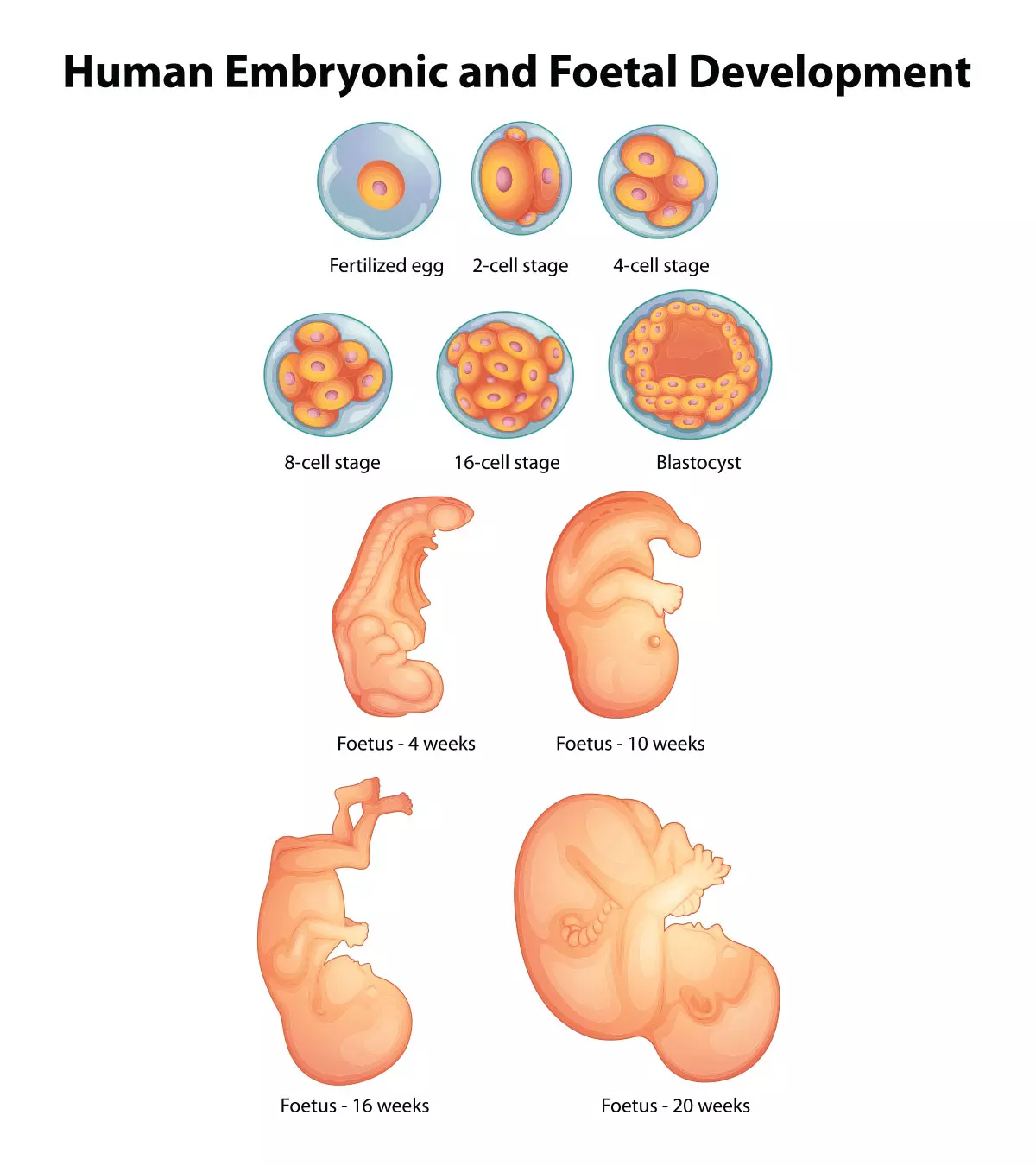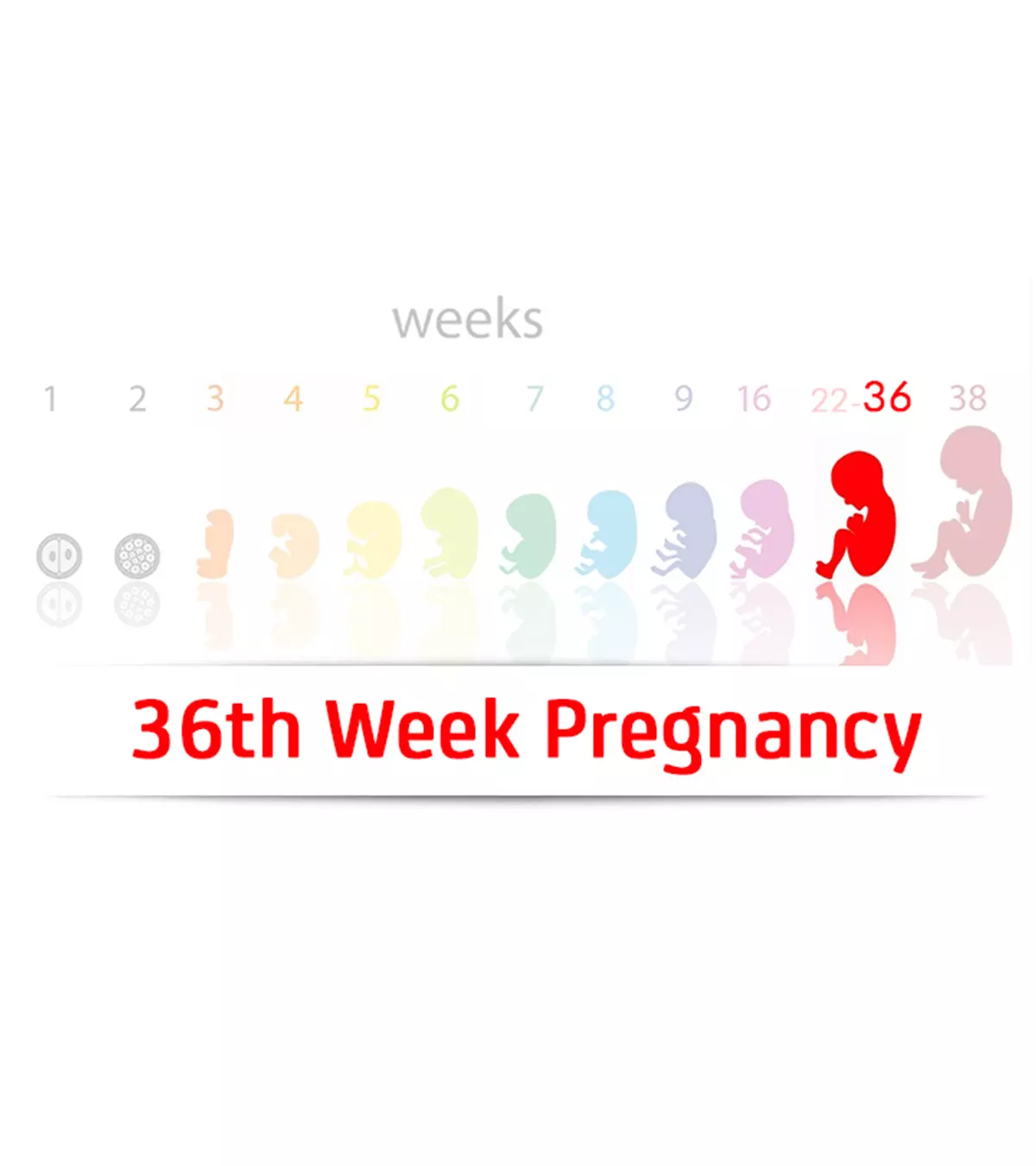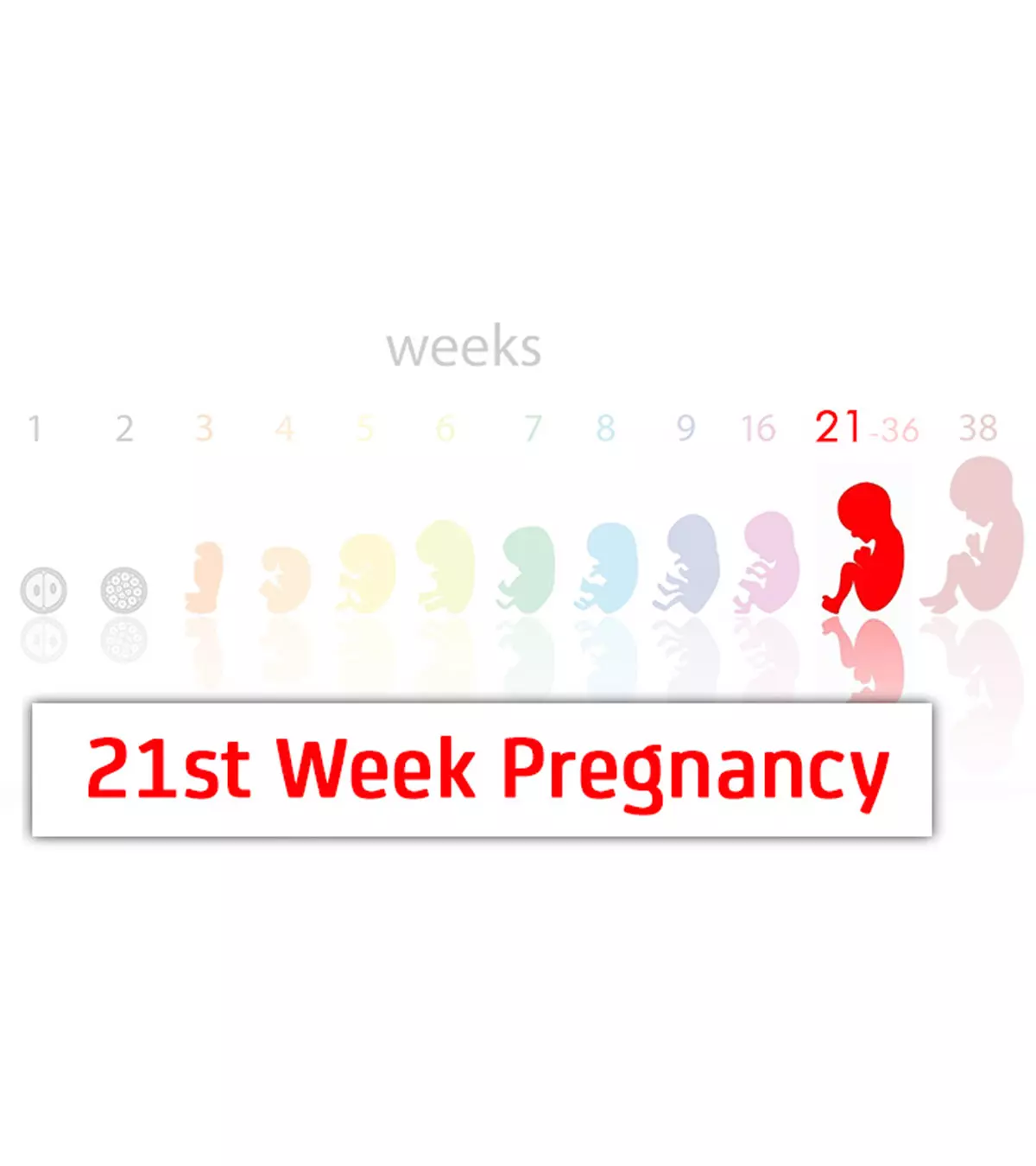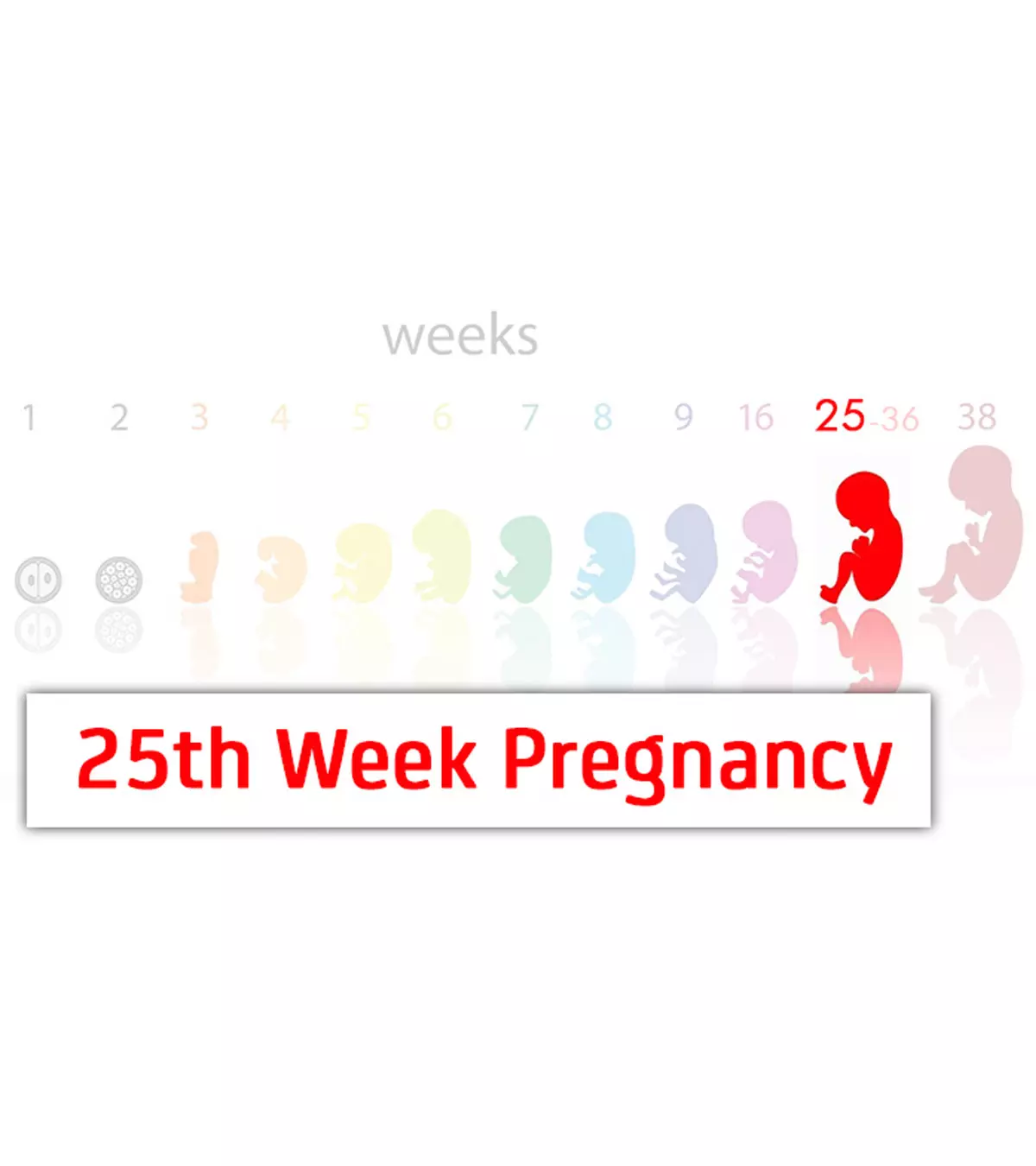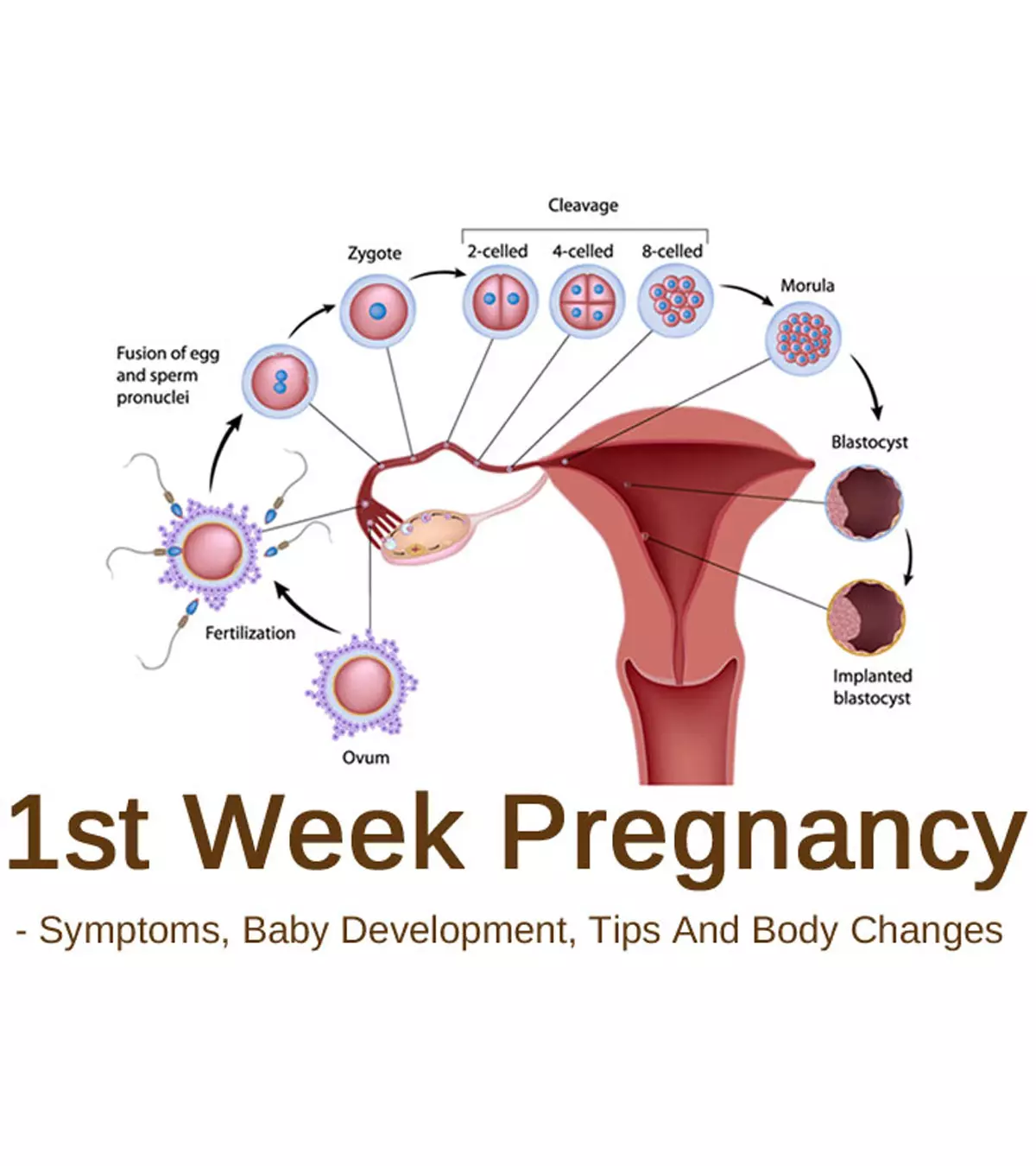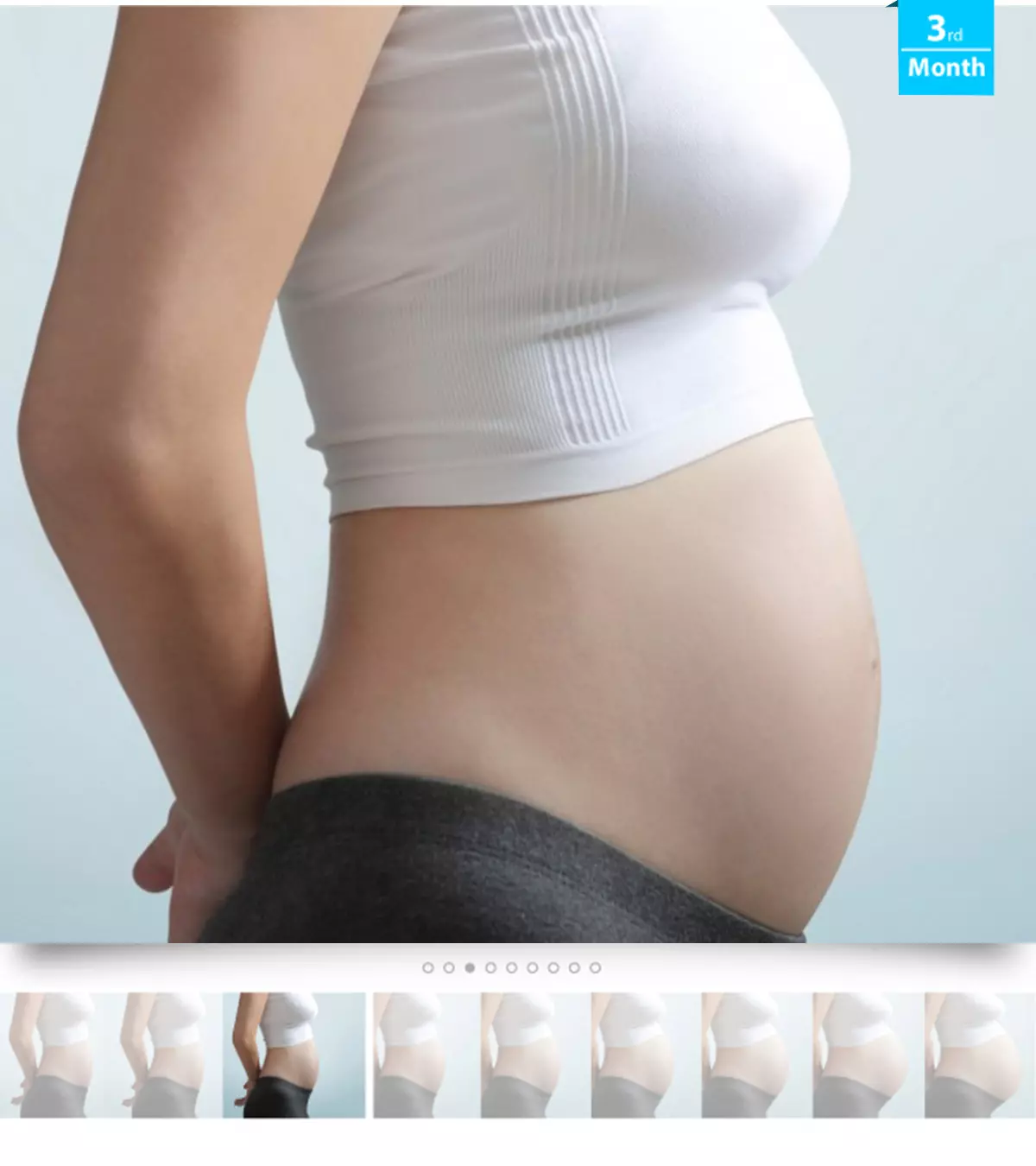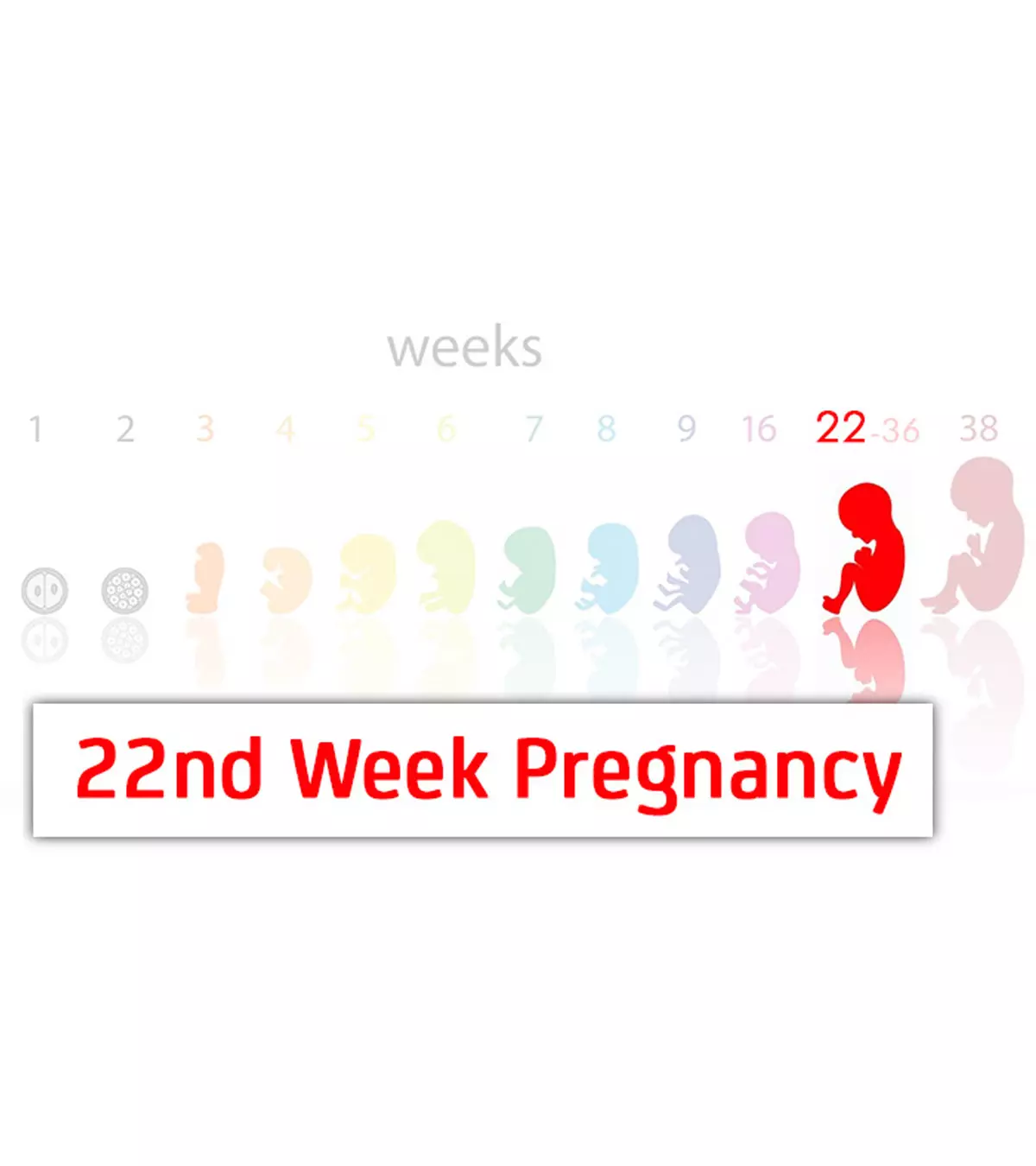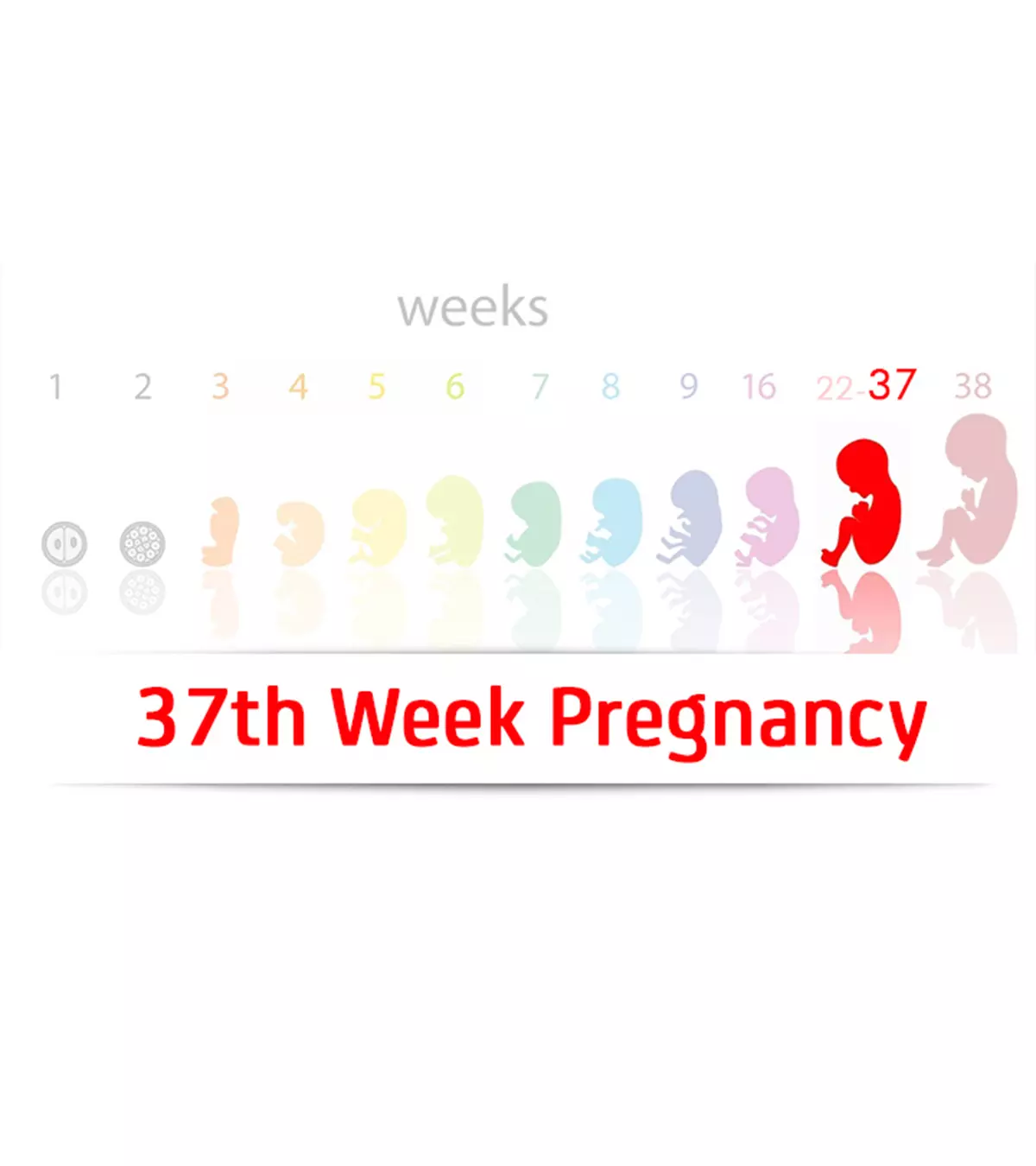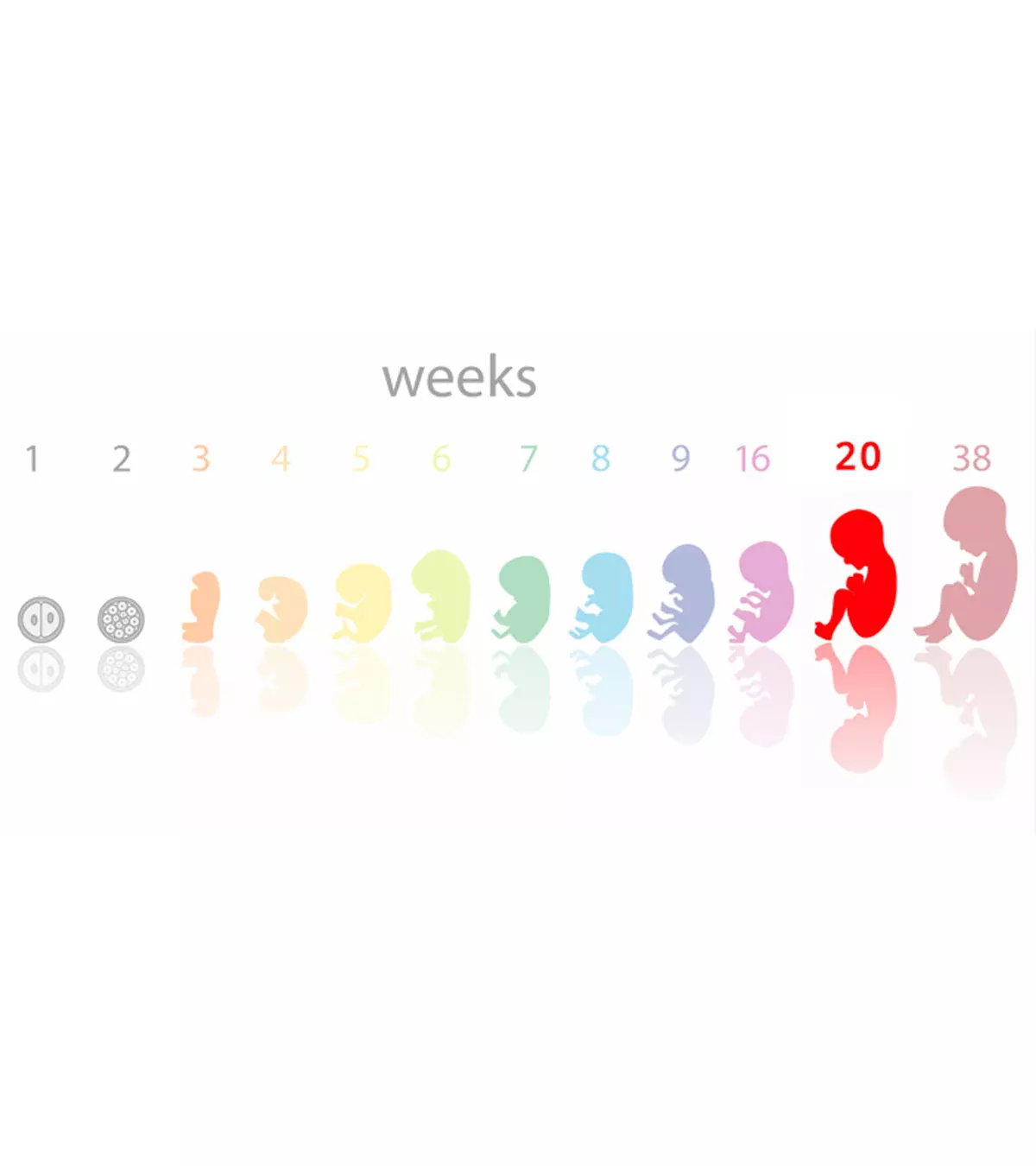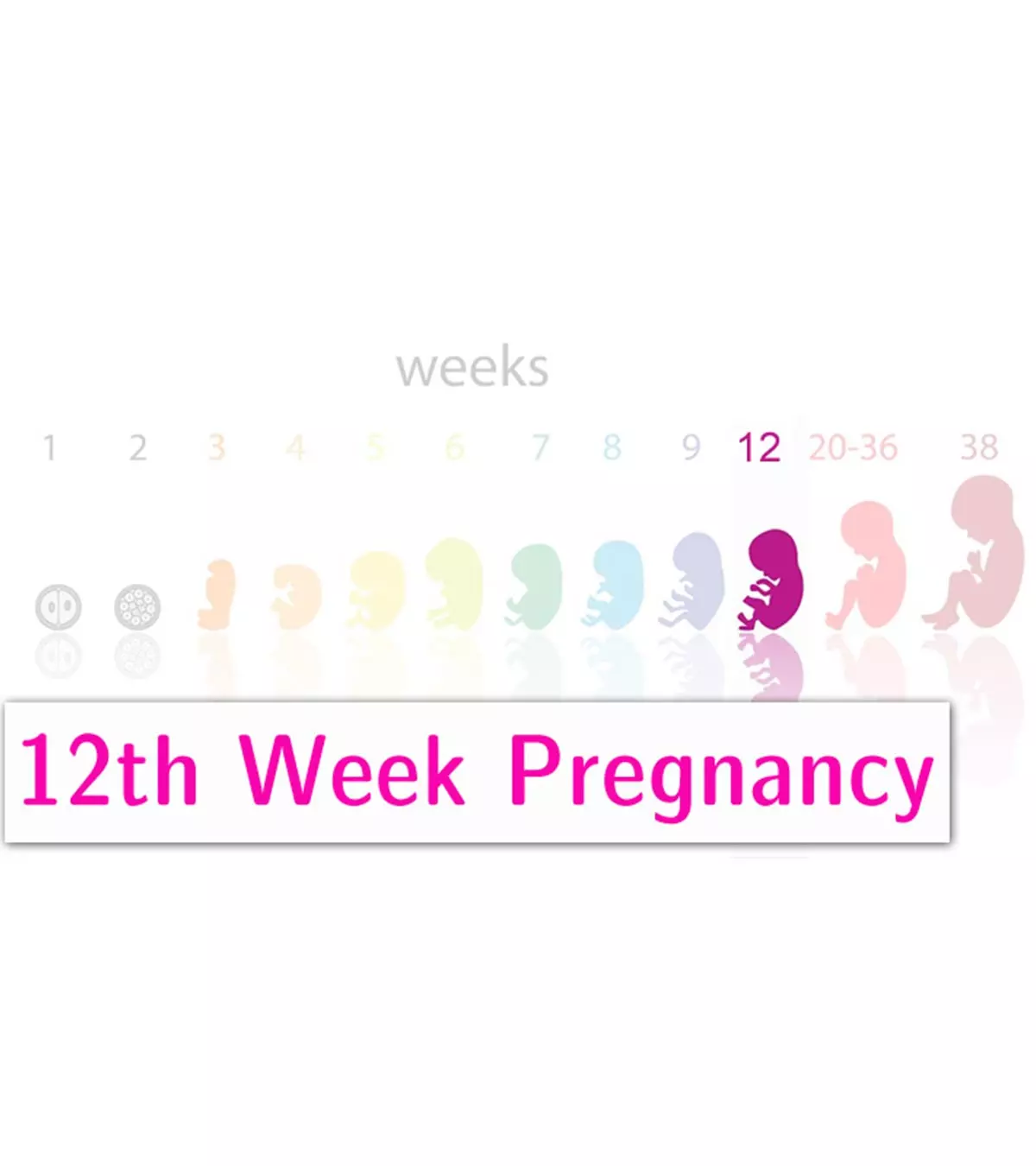
Image: Shutterstock
The 12th week of pregnancy marks the near end of the first trimester. During this time, you will be able to visualize your baby’s fine movements via ultrasound, and the baby’s organs should be almost developed by now.
You should provide your little baby with optimum prenatal care for wholesome fetal development and growth. So, if you want to know the progress towards the end of the first trimester, continue reading. In this post, we tell you all about it, including the changes in your body and the growth and development of your baby. We also give you some useful tips on helping you have a healthy pregnancy.
Key Pointers
- External features such as hair, fingers, muscles, and external genitals develop in the baby at 12 weeks.
- The fetus’s heartbeat, which is twice the mother’s heart rate, can be electronically detected by the doctor.
- In the 12th week, a baby bump appears, and the skin begins to glow.
- Dizziness, headache, fatigue, gas and bloating, spotting, increased sense of smell, and mood swings are common symptoms during the 12th week.
- A well-balanced diet and regular exercise can help prepare for the coming months of pregnancy and keep the child healthy.
Baby Development
At 12 weeks, your baby would be about the size of a lime. This is the time when your baby starts to develop rapidly.
- Size: The fetus will be around 2 ½ inches in size, and 0.5-1oz in weight. Most of the features are formed by now (1) (2) (3):
- The major external features of the body are developed.
- Hair starts to grow, but can’t be seen till the end of the pregnancy
- Eyelids are fused
- Fingers and toes are developed while the nails are still developing
- Muscles are in the developmental stage
- External genitals are developed
- The larynx or the voice box starts to develop in the trachea
- Moves slightly and randomly, but the mother cannot feel the movements yet
- Heartbeat: This is the usual time when a doctor detects fetal heartbeat electronically. At 12 weeks, normal fetal heart rate ranges from 110 to 160, which is twice the heart rate of the mother (4). The ultrasound scan at this time of pregnancy will give you its details.
In case the heartbeat is not detected, you don’t have to worry as you might be a week or two early. Or the baby’s position might be wrong. Your doctor would try to detect the heartbeat in the coming weeks.
- Digestive system: The baby’s digestive system is at a developing stage at 12 weeks, and does not perform any major functions. The baby gets all the nutrition from the mother via the umbilical cord and the placenta. Therefore, you should take on a well-balanced diet.
Continue reading to know about the bodily changes you may experience in the 12th week of pregnancy.
 Did you know?
Did you know?Body Changes At 12 Weeks

Image: Shutterstock
Changes that you may start noticing at this time include:
- A growing belly: You will start showing your baby bump. You may notice a round belly with a smooth waistline. However, for some women, it may begin to appear in and around the 13th or 14th week too.
Annie Ridout, a mother, discusses her symptoms during the 12th week of her third pregnancy, “I’m pregnant with my third child, and by about eight weeks in, I couldn’t do up my trousers; call it bloating, but it felt like stretching womb to me (i).”
- Change in skin tone: Some women may notice a glow on their face as they reach the 12th week, while some women find their complexion getting darker.
- Weight gain: You will start to put on some weight due to the additional being growing inside of you. On average, one to five pounds of weight gain is expected in the first trimester (5).
In addition to these, you will experience the typical symptoms of pregnancy this week.
What Are The Symptoms At 12 Weeks Pregnancy?

Image: Shutterstock
You might have experienced a number of pregnancy symptoms through your first trimester. In the 12th week, you may or may not have them. Some common symptoms of pregnancy in the 12th week include:
- Dizziness and headache: Most women experience occasional headaches during the end of the first trimester or the 12th week of pregnancy. It could be due to the straining of the eyes or stress. Sometimes, the headaches may cause dizziness as well (5).
- Fatigue: Morning sickness may disappear slowly by this time of pregnancy. And you may experience tiredness quite often from this week on. It could be due to the stress and the growing physical demands of the body (3).
- Gas and bloating: The digestive system may get slower during this time, as the uterus is growing. This results in gas formation in the stomach, making you feel bloated.
- Spotting: Light vaginal bleeding or spotting could happen during the first trimester, usually for not more than a day. In case you notice regular spotting, you should let your doctor know about it (6).
- Increased sense of smell: Many women also experience a heightened sense of smell when they reach the end of their first trimester. That’s one of the reasons why you feel an aversion to certain foods (7).
- Others: Excessive saliva, increased urination, mood swings, or anxiety are some other changes that you could observe when you are 12-weeks pregnant.
As these symptoms are common and manageable, there is no need to worry about them. Also, they tend to fade away with time.
In the next section, we talk about the 12-week ultrasound scan and what it shows.
 Things to know
Things to know12 Weeks Pregnant Ultrasound

Image: Shutterstock
The first ultrasound scan is usually done at 12 weeks of pregnancy and gives the first glimpse of the baby inside you. As most of the organs of the baby are formed by now, this scan provides details such as (8) (9):
- Assessment of the baby’s development
- The age of the pregnancy, and the estimated date of delivery
- The heart rate of the baby
- If you are carrying one baby or more. It is also possible to assess if there are any congenital abnormalities
- Whether or not the baby is in its right place
The 12-week ultrasound takes about 20 to 30 minutes. The sonographer will apply a gel on your tummy and use a device that helps to show the black and white image of your baby on the monitor. This is a low-cost, non-invasive, and low-risk scan that gives adequate details about your baby. In case you have any doubt, feel free to ask the medical professional about it.
By the end of 12 weeks, the fetus is not as vulnerable as it has been the weeks before. But care must be taken to ensure you stay healthy, and the pregnancy progresses as it should.
Things To Remember In The 12th Week Of Pregnancy

Image: Shutterstock
- Follow a well-balanced diet as your baby is growing and would need proper nutrition.
- Don’t worry about the darkening of skin or stretch marks as they usually fade away with time. If not, they can be managed. You can apply sunscreen before going out in the sun.
- Don’t be stressed about the emotional or physical changes in your body. Instead, embrace your pregnancy and stay relaxed. Try to listen to music and surround yourself with positive people.
- Start exercising during this time. You can ask your doctor about the ideal exercises for this time. You can also join prenatal exercise classes that could help.

Image: Shutterstock
- Inform your doctor about any health complications such as blood pressure, diabetes, or so.
- Discuss prenatal vitamin intake with your doctor. Prenatal vitamins with folic acid are vital for the development of the baby’s brain and spinal cord.
- You can add some maternity clothes to your wardrobe.
- Avoid unhealthy habits such as late night snacking, binge eating fast food during pregnancy, smoking, and excess consumption of sweets and fats.
 Quick tip
Quick tipFrequently Asked Questions
1. Where is the baby in my womb at 12 weeks?
At 12 weeks, your baby is fully formed and fills your entire uterus (10). They have all the organs by now and some parts start to function.
2. Why is pregnancy at 12 weeks considered safe?
Twelve weeks into pregnancy or the end of the first trimester is considered safe because the risk of miscarriage in the second trimester becomes significantly low (11).
3. What are the risks associated with smoking or drinking during pregnancy at 12 weeks?
Smoking and drinking during pregnancy can increase the adverse outcomes for the baby. Smoking during pregnancy might lead to placental abruption, preterm labor and intrauterine growth restriction (IUGR). On the other hand, consumption of alcohol during pregnancy might increase the risk of low birthweight, in addition to the aforementioned complications (14).
4. How can I manage my stress levels during the 12th week of pregnancy?
You can manage stress by prioritizing rest, eating healthy food, sleeping well, practicing mindfulness, engaging in relaxation exercises and spending adequate time with your partner and family member (15).
5. What kind of dietary changes should a woman make at 12 weeks pregnant?
It is important to include foods such as vegetables, fruits, low-fat dairy products, protein, and whole grains in a pregnancy diet in order to receive adequate nutrition. It is also advised to restrict the consumption of foods with added sugars or saturated fats. During the first 12 weeks, women do not need extra calories. Hence, following a well-balanced diet is sufficient (16).
6. How much water should I drink during pregnancy to stay hydrated?
Staying hydrated during pregnancy is essential for digestion and maintaining amniotic fluid levels. Try to drink 8 to 12 cups (64 to 96 ounces) of water daily, adjusting for your activity level and climate (17).
When you reach the 12th week of gestation, you have reached the first milestone in your pregnancy and the end of trimester one. You may hear your baby’s heartbeat during this time and begin to show a tiny baby bump. Fatigue, nausea, bloating, and a heightened sense of smell are the common 12th-week pregnancy symptoms. Ensure to follow a well-balanced diet, perform moderate prenatal exercises, and take your prenatal vitamins regularly to enjoy a stress-free, healthy pregnancy. Do not hesitate to call your doctor if you have any concerns.
Infographic: Things To Follow For A Safe Pregnancy At 12 Weeks
Being 12 weeks pregnant means you will be in the end week of completing your first trimester, and soon, you will start to show a baby bump. Read through the infographic below to learn about useful tips that could help maintain a healthy and safe pregnancy at this stage.

Illustration: Momjunction Design Team
“Watch a video to see how your baby grows and your body changes in the 12th week of pregnancy. Gain insights into these developments during this crucial stage.”
Personal Experience: Source
MomJunction articles include first-hand experiences to provide you with better insights through real-life narratives. Here are the sources of personal accounts referenced in this article.
i. I’m 12 weeks pregnant but I just feel fat;https://medium.com/@kim.palmer/im-12-weeks-pregnant-but-i-just-feel-fat-clementine-app-5122135a6bdf
References
1. Fetal Growth And Development; SouthDakota Department of Health
2. A Woman’s Right To Know; Wisconsin Department of Health Services
3. The First Trimester; Beaumont Health
4. S. P. Steinburg et al.; What is the “normal” fetal heart rate?; Peer J Journals (2013)
5. Pregnancy – Prenatal; Cedars-Sinai
6. Vaginal Bleeding During Pregnancy Warning Signs And Causes; UNM Hospitals
7. Smell That Again?: Does Being Pregnant Heighten Your Sense of Smell?; Gustavus Adolphus College
8. Ultrasounds; The Women’s Center At Southwest Health
9. 12-week pregnancy dating scan; NHS
10. Pregnancy at week 12; Pregnancy birth & baby
11. When to tell people you are pregnant; Pregnancy birth & baby
12. Pregnancy Week 12; American Pregnancy Association
13. 12 Weeks Pregnant; NHS
14. Hein J Odendaal et al. ; Dangers of smoking cigarettes and drinking alcohol during pregnancy; National Library of Medicine (2020)
15. Stress and pregnancy; March of Dimes
16. Eat Healthy During Pregnancy: Quick Tips; US Department of Health and Human Services
17. How much water should I drink during pregnancy?; ACOG
Community Experiences
Join the conversation and become a part of our nurturing community! Share your stories, experiences, and insights to connect with fellow parents.
Read full bio of Dr. Vimee Bindra
Read full bio of Sakshi Mishra
Read full bio of Rebecca Malachi
Read full bio of Aneesha Amonz








